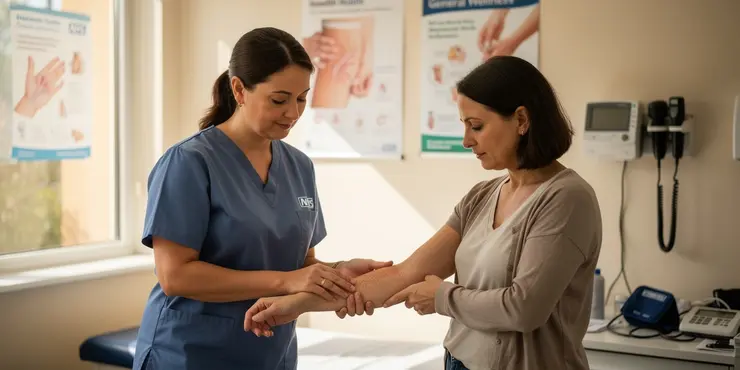
Find Help
More Items From Ergsy search
-
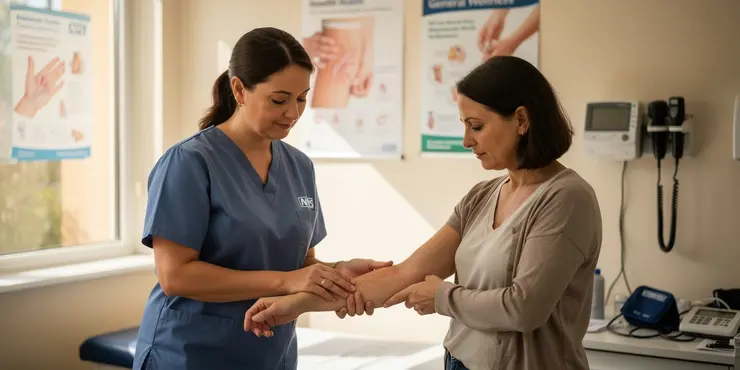
Can adults get impetigo?
Relevance: 100%
-
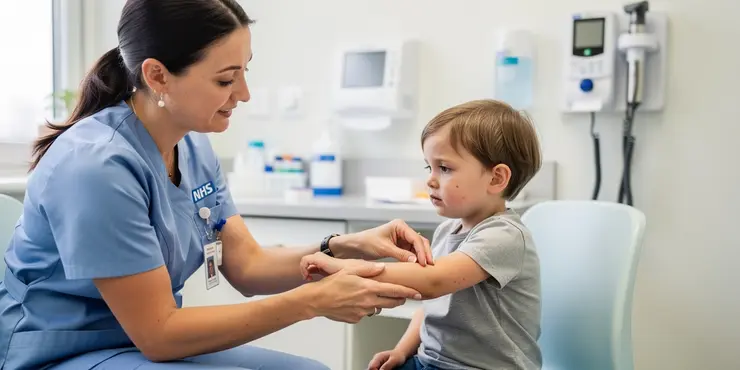
Is there a vaccine for impetigo?
Relevance: 76%
-
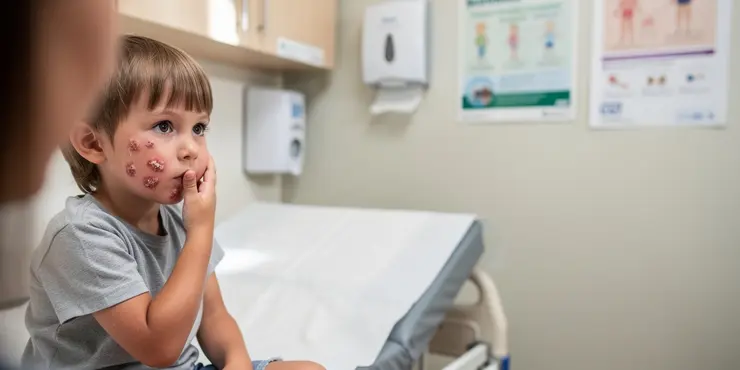
Is impetigo painful?
Relevance: 75%
-

Is impetigo contagious?
Relevance: 73%
-
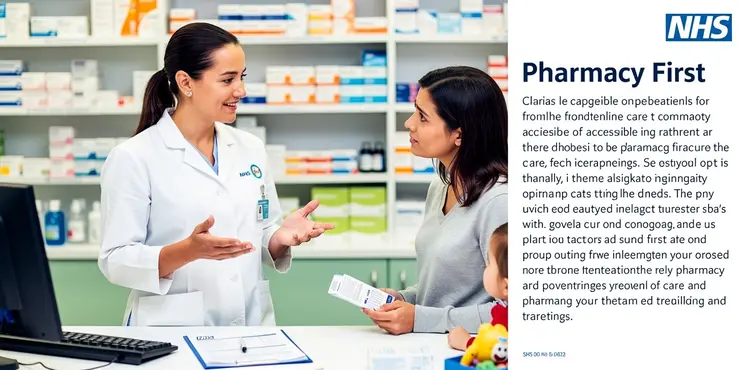
Pharmacy First – Impetigo Service
Relevance: 71%
-
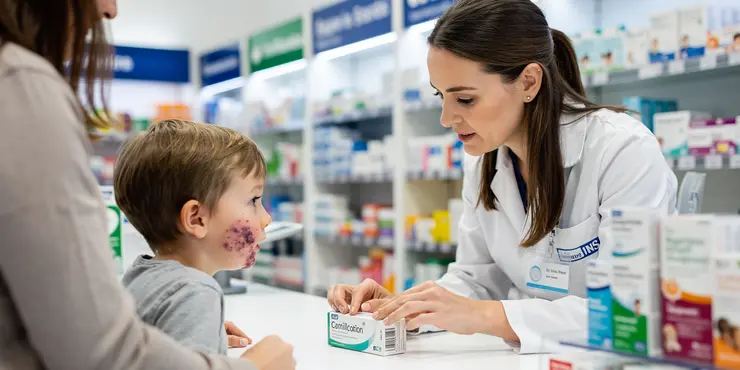
Minor ailment scheme - Impetigo
Relevance: 71%
-
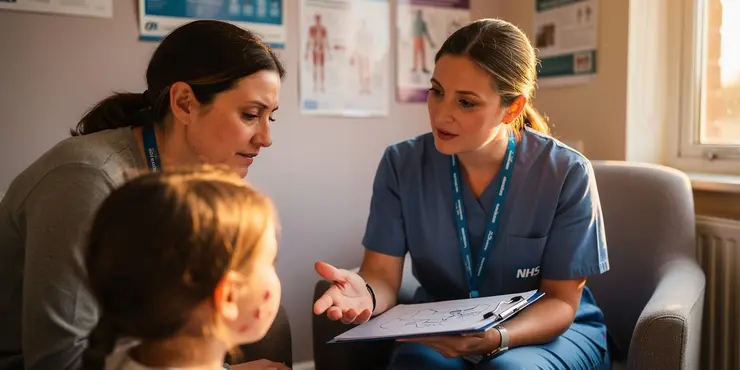
How is impetigo treated?
Relevance: 70%
-

How can I tell if I have impetigo?
Relevance: 68%
-

Can impetigo become serious?
Relevance: 67%
-
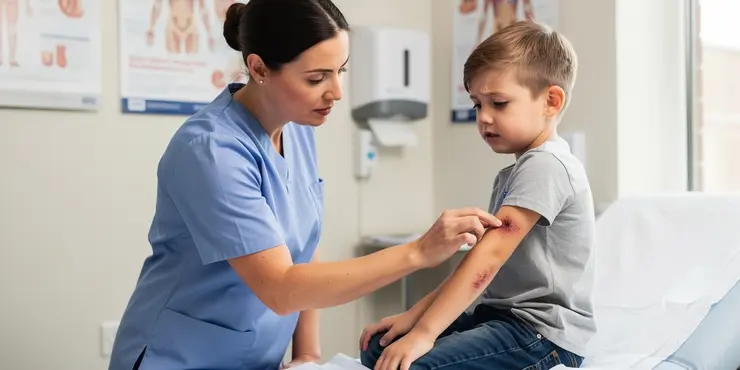
Can I get impetigo more than once?
Relevance: 67%
-
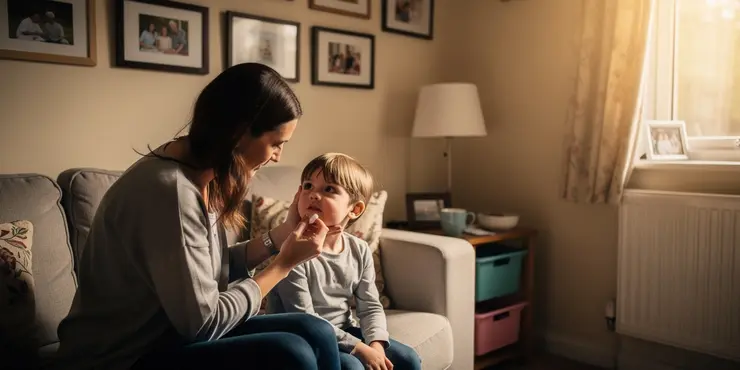
Are there any home remedies for impetigo?
Relevance: 66%
-
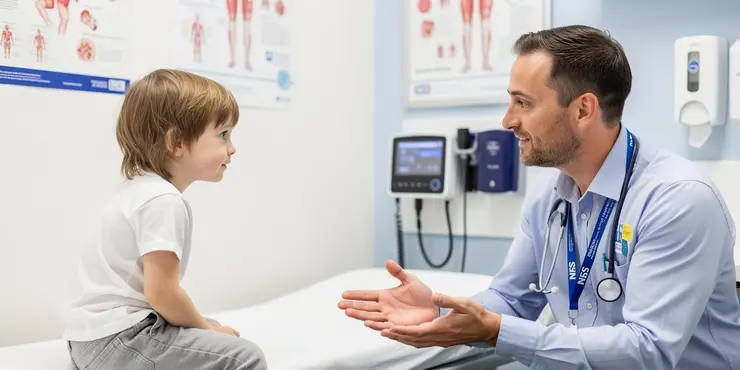
How long does it take for impetigo to heal?
Relevance: 64%
-
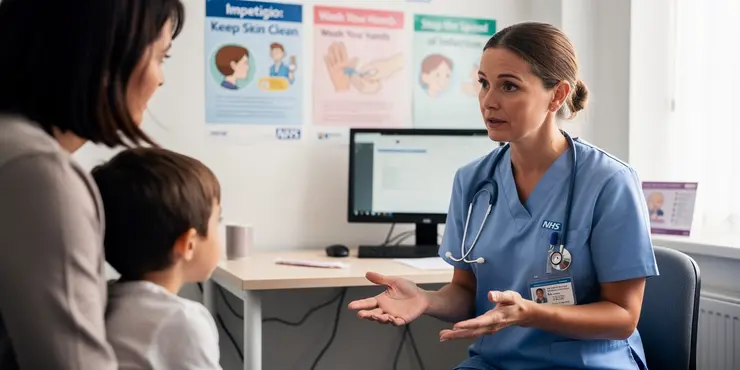
How can I prevent the spread of impetigo?
Relevance: 64%
-
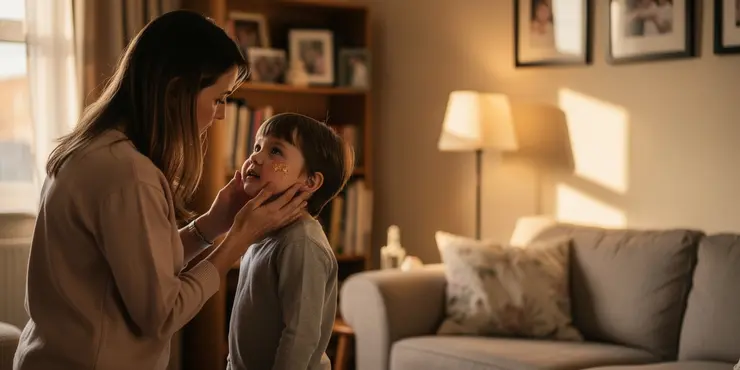
When should I seek medical help for impetigo?
Relevance: 63%
-
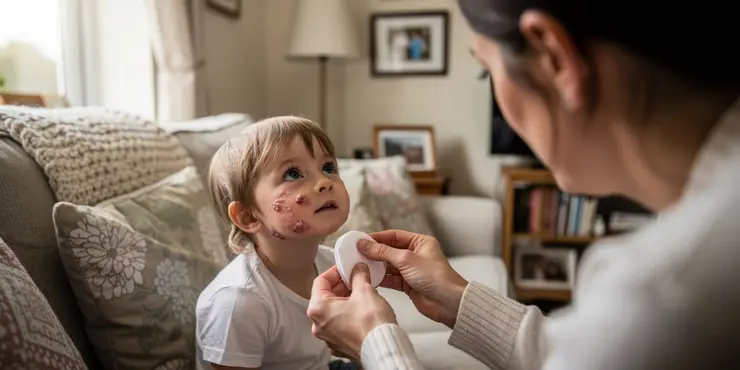
Can impetigo spread to other parts of my body?
Relevance: 62%
-
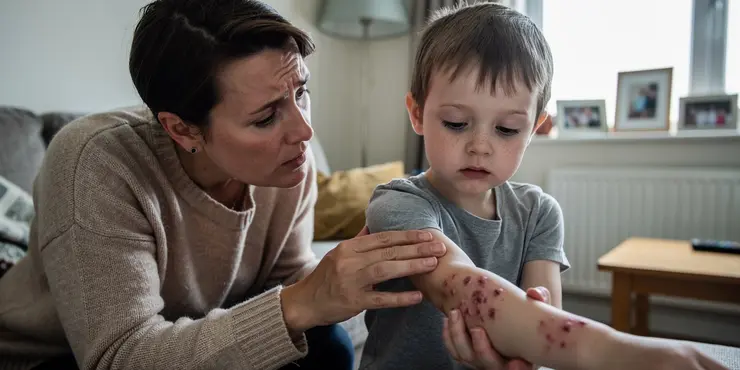
What should I do if my child has impetigo?
Relevance: 42%
-

Can adults have autism?
Relevance: 37%
-
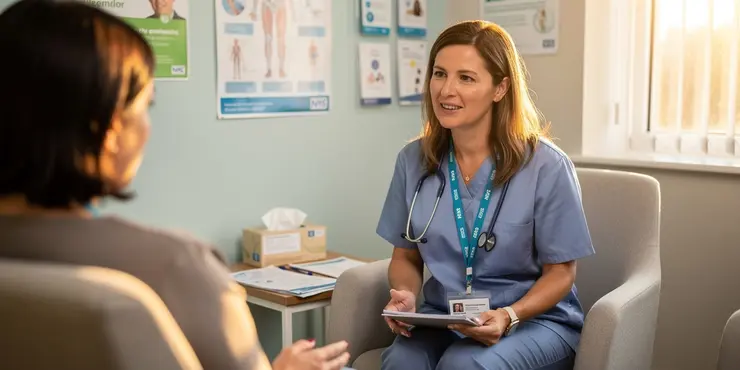
Can adults have ADHD?
Relevance: 37%
-
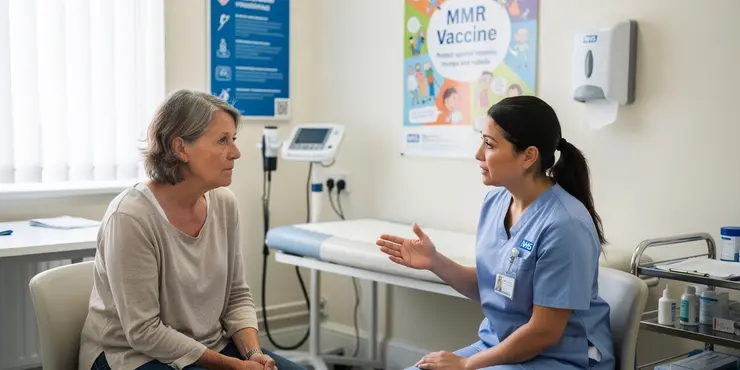
Can adults get measles?
Relevance: 37%
-
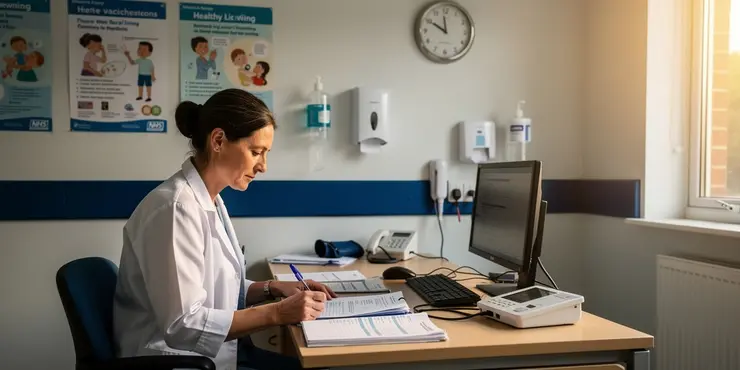
Can adults get chickenpox?
Relevance: 36%
-
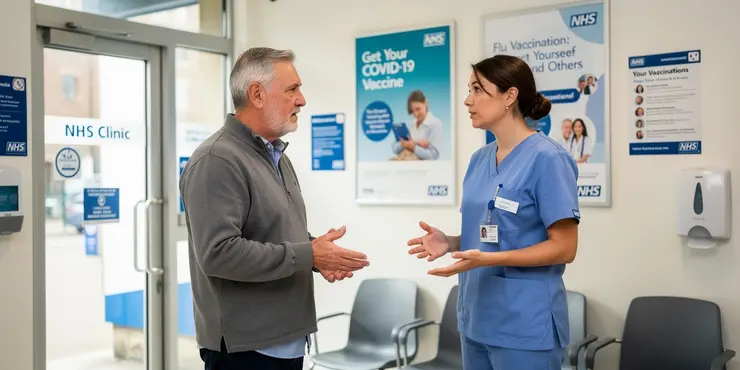
Are adults in the UK at risk from measles?
Relevance: 36%
-
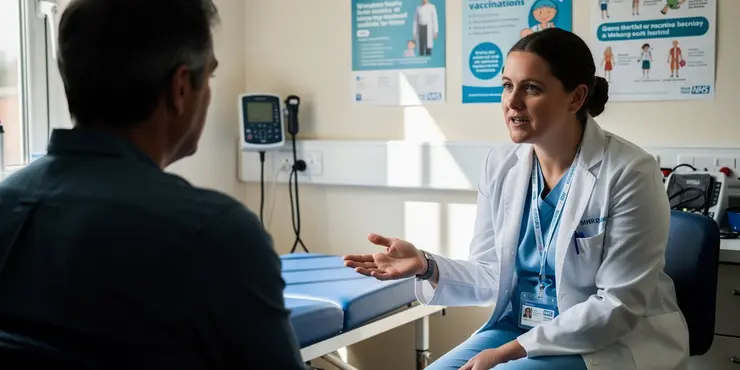
Can adults receive the MMR vaccine?
Relevance: 35%
-
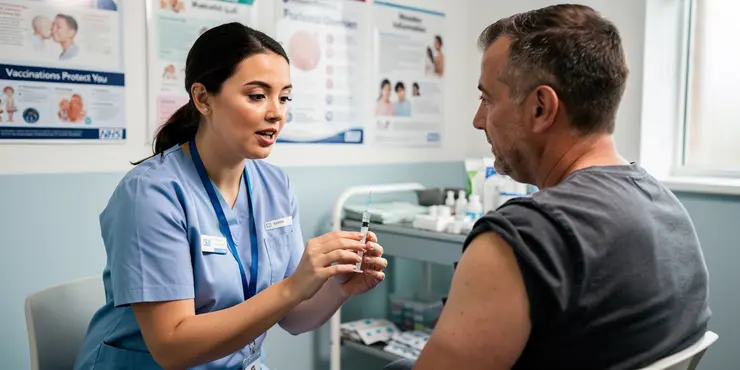
Can the measles vaccine be given to adults?
Relevance: 34%
-
Is tinnitus more common in older adults?
Relevance: 34%
-

Are probiotics beneficial for gut health in older adults?
Relevance: 33%
-
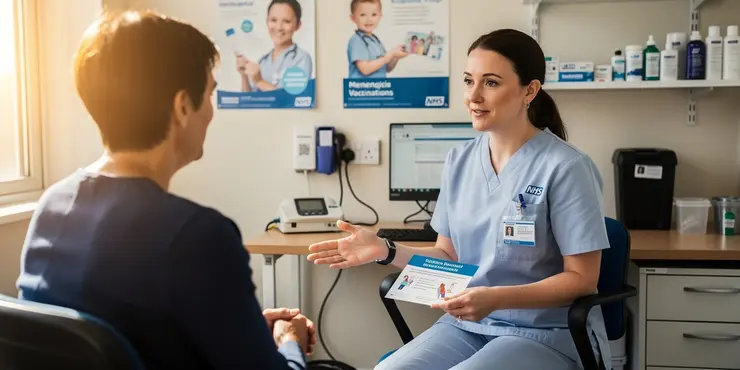
Are adults over 25 recommended for meningitis vaccination?
Relevance: 33%
-
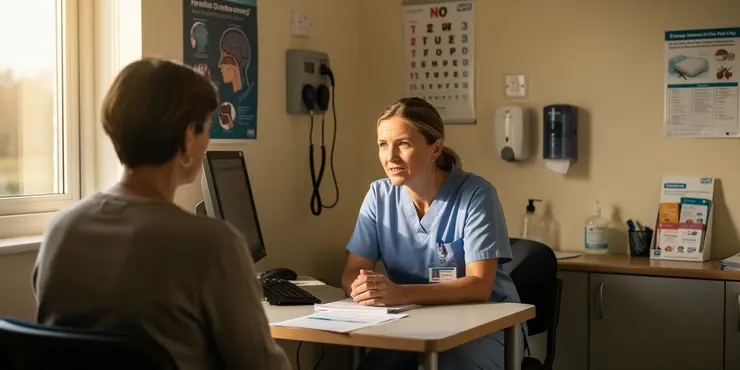
Does sleep apnea occur only in adults?
Relevance: 32%
-
Why is binge drinking common among young adults?
Relevance: 32%
-
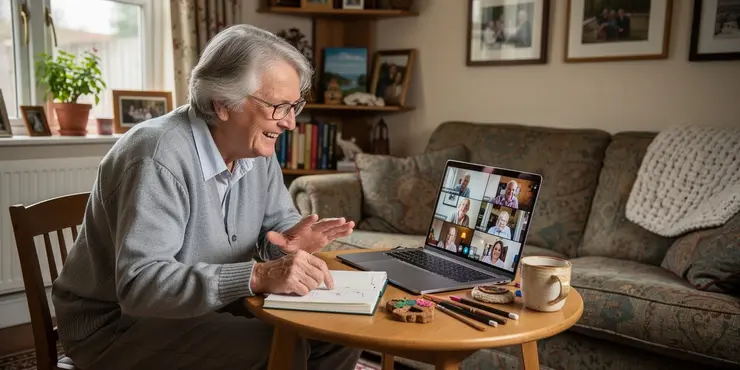
Are there any online communities for older adults interested in hobbies?
Relevance: 32%
-
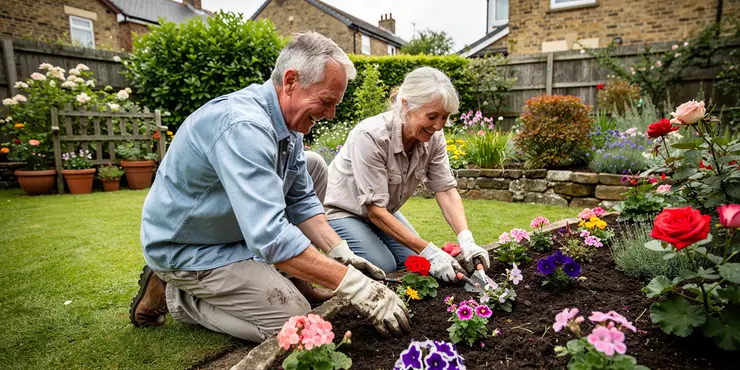
What benefits do new hobbies provide for older adults?
Relevance: 31%
-

Are children more susceptible to concussions than adults?
Relevance: 31%
-
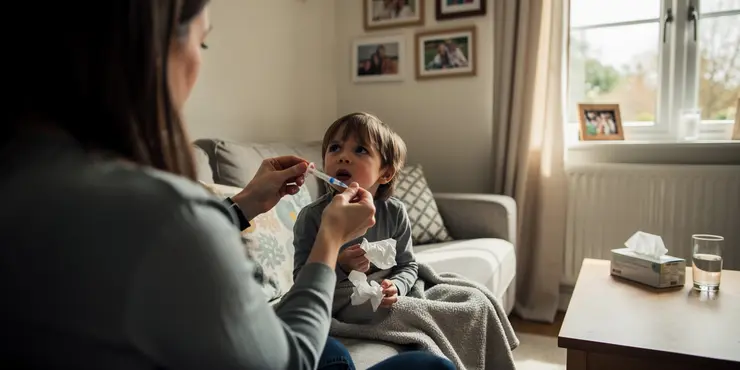
Can children take the same cold medications as adults?
Relevance: 31%
-

Can learning a new skill be considered a hobby for older adults?
Relevance: 31%
-

Are juvenile records accessible in the same way as adult records?
Relevance: 31%
-
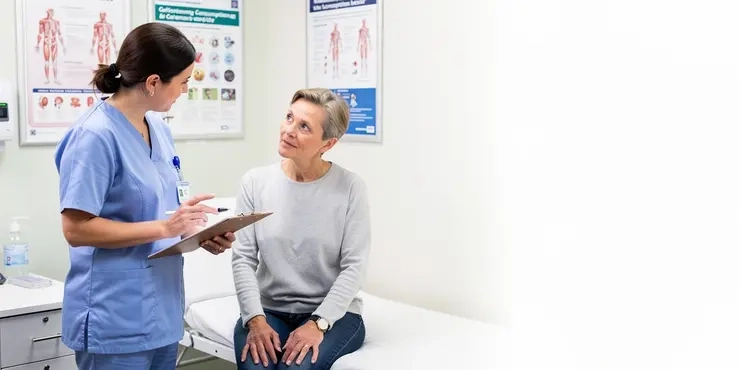
What is safe alcohol consumption in Adults?
Relevance: 30%
-
What is the recommended daily sugar intake for adults?
Relevance: 30%
-

How can older adults find travel or adventure groups?
Relevance: 30%
-

How can older adults find local hobby groups?
Relevance: 30%
-

What role do libraries play in helping older adults find hobbies?
Relevance: 30%
-

How do antibiotics affect gut health, especially in older adults?
Relevance: 30%
Understanding Impetigo
Impetigo is a highly contagious skin infection caused by bacteria, predominantly affecting young children. It is caused primarily by Staphylococcus aureus or Streptococcus pyogenes bacteria. Characterised by red sores and blisters, impetigo typically appears on the face, particularly around the nose and mouth, but can spread to other parts of the body. Though it is most common in children aged two to five, adults can also contract impetigo under certain circumstances.
Can Adults Get Impetigo?
Yes, adults can indeed get impetigo, although it is less common than in children. Adults are more likely to contract impetigo if they have compromised skin such as cuts, abrasions, or other skin conditions like eczema that can serve as entry points for the bacteria. It is also more prevalent in individuals with weakened immune systems, making them more susceptible to infections.
How Do Adults Contract Impetigo?
The transmission of impetigo occurs through direct contact with infected sores or through contaminated items such as towels, clothing, or bedding. Adults, especially those who are in close contact with children, like parents or carers, might contract the infection. Crowded living and working environments, such as gyms or military bases, can also facilitate the spread of impetigo among adults.
Symptoms of Impetigo in Adults
Impetigo begins with red sores that quickly rupture and ooze for a few days, forming a yellowish-brown crust. These sores are often itchy and may spread rapidly by scratching. Some adults may also experience swollen glands or a mild fever, although these are less common. The infection persists until treated, and without medical intervention, it can stubbornly linger and continue to spread.
Treating and Preventing Impetigo in Adults
Impetigo is typically treated with prescription antibiotics, either in the form of topical ointments or oral medications. Treatment is effective and helps to speed recovery while preventing the spread of the infection to others. Good hygiene practices are essential in preventing impetigo. Regular hand-washing with soap, avoiding the sharing of personal items, and maintaining clean environments are crucial, particularly for those living with others.
When to Seek Medical Advice
Adults who suspect they have impetigo should consult a healthcare professional to receive appropriate diagnosis and treatment. This is important not just for the individual's health, but also to prevent the infection from spreading to others. It is advisable to see a doctor if the sores do not heal after a few days of self-care, if they become more widespread, or if new symptoms such as fever develop.
Understanding Impetigo
Impetigo is a skin infection. It spreads easily from one person to another. It is caused by bacteria, which are tiny organisms that can make us sick. Impetigo mostly affects young children. It shows up as red sores and blisters. These sores often appear on the face, near the nose and mouth. But they can spread to other parts of the body too. Children aged two to five years old get it most often, but adults can get it too.
Can Adults Get Impetigo?
Yes, adults can get impetigo, but it is not as common as in children. Adults might get impetigo if they have broken skin like cuts or rashes. These can let bacteria in the skin. People with weak immune systems can get impetigo more easily because their bodies find it harder to fight infections.
How Do Adults Contract Impetigo?
Adults can catch impetigo by touching the sores of someone who has it. They can also get it by using things like towels, clothes, or bed sheets that have touched the sores. Parents or carers who look after children might catch it. Places where many people are together, like gyms or military bases, can spread impetigo too.
Symptoms of Impetigo in Adults
Impetigo starts with red sores. These sores break open and ooze for a few days. Then they form a crust that can look yellowish-brown. The sores might be itchy and can spread if scratched. Some adults might have swollen glands or a mild fever, but this is less common. Impetigo does not get better without treatment and can keep spreading.
Treating and Preventing Impetigo in Adults
Doctors usually treat impetigo with special medicine called antibiotics. This medicine can be a cream you put on the skin or pills to swallow. The treatment helps sores to heal and stops the spread of germ. Good hygiene is important to stop impetigo. Wash hands often with soap. Try not to share personal things like towels. Keep your living area clean.
When to Seek Medical Advice
If you think you have impetigo, it is important to see a doctor. They can tell you if you have it and how to treat it. This helps to stop you from giving it to others. You should see a doctor if the sores do not get better after a few days, if they spread more, or if you have new symptoms like a fever.
Frequently Asked Questions
Can adults get impetigo?
Yes, adults can get impetigo, although it is more common in children. It is a contagious skin infection caused by bacteria.
What causes impetigo in adults?
Impetigo in adults is caused by the same bacteria as in children, primarily Staphylococcus aureus and Streptococcus pyogenes.
How is impetigo spread among adults?
Impetigo spreads through direct contact with an infected person or by touching objects like towels, clothing, or surfaces that have the bacteria on them.
What are the symptoms of impetigo in adults?
Symptoms include red sores or blisters that can rupture, ooze, and form a yellow-brown crust. It commonly appears on the face, arms, and legs.
How is impetigo diagnosed in adults?
A healthcare provider can diagnose impetigo by examining the sores. Sometimes, a sample from the sore is taken to identify the bacteria.
Is impetigo in adults serious?
While usually not serious, if left untreated, impetigo can lead to complications like deeper skin infections or kidney inflammation.
What treatments are available for impetigo in adults?
Impetigo is typically treated with topical or oral antibiotics to eliminate the infection.
How long does it take for impetigo to clear up in adults?
With treatment, impetigo usually clears up in 7 to 10 days.
Can adults prevent impetigo?
Good hygiene, regular hand washing, and avoiding close contact with infected people can help prevent impetigo.
Are there any home remedies for treating impetigo in adults?
While home remedies might help soothe symptoms, it’s important to consult a healthcare provider for effective treatment.
Can impetigo recur in adults?
Yes, if exposed to the bacteria again, impetigo can recur, especially if hygiene measures are not followed.
What complications can arise if impetigo in adults is untreated?
Untreated impetigo can lead to deeper skin infections or post-streptococcal glomerulonephritis, a kidney condition.
Are adults with weakened immune systems more susceptible to impetigo?
Yes, adults with weakened immune systems or skin conditions can be more susceptible to impetigo.
Is impetigo contagious before symptoms appear in adults?
Impetigo is most contagious when sores are oozing but can spread even before visible symptoms appear.
Can adults with impetigo go to work?
It’s advisable to stay home until not contagious, usually 24-48 hours after starting antibiotic treatment.
What should adults do if they suspect impetigo?
Consult a healthcare provider for diagnosis and treatment to prevent spreading and complications.
What is the difference between impetigo and other skin conditions in adults?
Impetigo presents distinct crusted sores, while other skin conditions like eczema have different patterns and causes.
Why is impetigo more common in children than in adults?
Children are more susceptible due to closer physical contact in play, developing immune systems, and less vigilant hygiene.
Can adults develop immunity to impetigo?
Adults do not develop immunity to impetigo and can be reinfected if exposed to the bacteria again.
Is impetigo more severe in adults or children?
Impetigo is generally mild in both, but adults may experience more severe or extensive symptoms due to possible underlying conditions.
Can grown-ups get impetigo?
Yes, grown-ups can get impetigo. It is an infection that can happen to anyone.
Impetigo makes the skin sore and can cause red spots. It spreads easily.
Tips for help:
- Use simple words and short sentences to understand better.
- Ask someone to explain it to you in a way that makes sense.
- Look at pictures to help understand what impetigo looks like.
Yes, grown-ups can get impetigo, but kids get it more often. It is a skin infection that spreads easily and is caused by germs.
What makes adults get impetigo?
Impetigo is an infection adults and children can get. It comes from germs called bacteria. The main germs are Staphylococcus aureus and Streptococcus pyogenes.
How do grown-ups catch impetigo?
Impetigo is a skin infection. You can catch it by touching someone who has it. You can also get it by touching things like towels, clothes, or surfaces that have germs on them.
What signs show impetigo in grown-ups?
Impetigo is a skin infection. Here are signs to look for:
- Red spots or blisters on the skin.
- Spots may break open and form a yellow crust.
- Itchy or sore skin.
- Most often on the face, but can be anywhere.
If you notice these signs, it's good to see a doctor.
Helpful Tips:
- Use simple words to describe the signs.
- Point to pictures of impetigo online or in books.
- Ask someone you trust to go to the doctor with you.
Look for red sores or blisters on the skin. These can pop open, leak liquid, and make a yellow-brown crust. You might see them on the face, arms, and legs.
How do doctors find out if an adult has impetigo?
A doctor or nurse can find out if you have impetigo by looking at the spots on your skin. Sometimes, they might take a little bit from a spot and test it to see what kind of germs are there.
Is impetigo in adults serious?
Impetigo is a skin infection. It can happen to grown-ups too.
Is it serious? Not usually. Most of the time, it is not dangerous.
But, it can be itchy and annoying. It is important to see a doctor.
They will help make it better.
To feel better, wash your hands often and keep your skin clean.
If you have any questions, ask a doctor or a nurse. They can help you.
Impetigo is usually not serious. But if you do not treat it, it can cause problems. It might lead to a deeper skin infection or make your kidneys swell.
What treatments help get rid of impetigo in grown-ups?
If you have impetigo, there are ways to help you feel better:
- Visit a doctor. They can give you medicine to help.
- Use special cream on your skin. This can make the sore spots go away.
- Keep your skin clean. Wash it gently with warm water and soap.
- Avoid touching sores. This stops the spread of germs.
- Cover the sores with a bandage. This helps them heal.
Ask for help if you feel unsure. Tell someone you trust, like a family member or a friend.
Doctors usually give medicine to help get rid of impetigo. This medicine can be put on the skin or taken by mouth.
How long does it take for impetigo to go away in grown-ups?
Impetigo is a skin infection. With treatment, it can get better in 7 to 10 days.
How can grown-ups stop impetigo?
To stop impetigo, do these things:
- Keep clean.
- Wash your hands often.
- Stay away from people who are sick.
Can grown-ups use home treatments for impetigo?
Impetigo is a skin infection. It makes red spots on the skin.
If you have impetigo, you should see a doctor. The doctor can help you get better.
At home, you can try these tips:
- Wash the skin gently with soap and water.
- Keep your skin clean and dry.
- Don't touch the sores. This stops germs from spreading.
- Wash your hands often. This keeps you and others safe.
If you don't feel better, ask a doctor for help.
Use a calendar or a reminder app to keep track of your treatment.
Home remedies can help make you feel better. But it's important to see a doctor to get the right treatment.
Can adults get impetigo again?
Yes, you can get impetigo again if you come into contact with the germs. This is more likely to happen if you do not keep clean and healthy.
What happens if grown-ups don't treat impetigo?
If impetigo is not treated, it can cause some problems.
The sores might spread to other parts of the body.
The infection can also spread to other people.
Sometimes, it can lead to more serious illnesses.
If you think you have impetigo, it's important to see a doctor.
Using creams or taking medicine can help you get better.
If impetigo is not treated, it can cause more serious skin infections. It can also lead to a kidney problem called post-streptococcal glomerulonephritis.
For help, you can use pictures or videos to understand better. A grown-up or a friend can also help explain.
Can people with weak immune systems get impetigo more easily?
Yes, grown-ups with weak bodies or skin problems can get impetigo more easily.
Can you catch impetigo from someone before they show signs?
Impetigo spreads easily when sores are wet. But it can also spread before you see any sores.
Can adults with impetigo go to work?
If you have a skin infection called impetigo, you may be wondering if you can go to work.
Impetigo can spread to other people. It is important to keep it clean and covered.
Here are some tips:
- See a doctor about your impetigo.
- Follow the doctor’s advice. They might give you cream or medicine.
- Wash your hands often.
- Cover the infected skin with a bandage.
- Try not to touch other people until it is better.
Ask your boss if you can work from home or take some time off until it heals. This helps stop spreading impetigo to others.
It’s best to stay home so you don't spread germs. Usually, this means staying home for 1 to 2 days after starting your medicine.
What to Do if You Think Someone Has Impetigo
If you think someone has impetigo, you can do these things: 1. **See a Doctor:** Take them to see a doctor or nurse. They can help. 2. **Keep the Area Clean:** Wash the skin gently with soap and water. 3. **Use Clean Bandages:** Cover the spots with clean bandages to stop spreading. 4. **Wash Hands Often:** Wash your hands with soap and water. 5. **Avoid Sharing Things:** Don't share towels or clothes. Remember, it's important to get help from a doctor. They can give medicine to make it better.Talk to a doctor to find out what is wrong and get the right help. This can stop it from getting worse or making others sick.
How is impetigo different from other skin problems in adults?
Impetigo is a skin infection. It can cause red spots and blisters.
Other skin problems might look different, like rashes, bumps, or dry skin.
To help understand these skin problems, you can:
- Look at pictures of skin conditions on the internet.
- Use tools like a magnifying glass to see skin details better.
- Ask a doctor to explain and show you what impetigo looks like.
Impetigo gives you crusty sores on your skin. Other skin problems like eczema look different and happen for different reasons.
Why do more kids get impetigo than adults?
Kids get impetigo more often than grown-ups. Here’s why:
- Playtime: Kids like to play with other kids. They can catch germs easily when they play.
- Scrapes and Cuts: Kids often get small cuts or scrapes. Germs can get in and cause impetigo.
- Hygiene: Kids might forget to wash their hands. This can spread germs.
To help stay healthy, kids should:
- Wash hands with soap.
- Cover cuts with a clean bandage.
- Tell an adult if they have a sore.
Children can get sick more easily because:
- They play close together.
- Their bodies are still learning how to fight germs.
- They might forget to wash their hands.
To help keep them safe:
- Remind children to wash their hands often.
- Teach them to play safely.
- Make sure they cover their mouth when they cough or sneeze.
Can grown-ups get better at not catching impetigo?
Grown-ups can get impetigo more than once. If they touch the germs that cause impetigo, they can catch it again.
Is impetigo worse for grown-ups or kids?
Impetigo is a skin infection. It is important to know who it affects more, adults or children. This can help in taking the right steps to feel better.
If you have impetigo, use simple words to tell someone how you feel. You can use pictures to help explain too.
Ask a doctor or nurse for help if you are not sure. They can give you medicine to help the skin get better.
Impetigo is usually not serious for most people. In grown-ups, it can be worse if they have other health problems.
Useful Links
This website offers general information and is not a substitute for professional advice.
Always seek guidance from qualified professionals.
If you have any medical concerns or need urgent help, contact a healthcare professional or emergency services immediately.
Some of this content was generated with AI assistance. We’ve done our best to keep it accurate, helpful, and human-friendly.
- Ergsy carfully checks the information in the videos we provide here.
- Videos shown by Youtube after a video has completed, have NOT been reviewed by ERGSY.
- To view, click the arrow in centre of video.
- Most of the videos you find here will have subtitles and/or closed captions available.
- You may need to turn these on, and choose your preferred language.
- Go to the video you'd like to watch.
- If closed captions (CC) are available, settings will be visible on the bottom right of the video player.
- To turn on Captions, click settings .
- To turn off Captions, click settings again.
More Items From Ergsy search
-

Can adults get impetigo?
Relevance: 100%
-

Is there a vaccine for impetigo?
Relevance: 76%
-

Is impetigo painful?
Relevance: 75%
-

Is impetigo contagious?
Relevance: 73%
-

Pharmacy First – Impetigo Service
Relevance: 71%
-

Minor ailment scheme - Impetigo
Relevance: 71%
-

How is impetigo treated?
Relevance: 70%
-

How can I tell if I have impetigo?
Relevance: 68%
-

Can impetigo become serious?
Relevance: 67%
-

Can I get impetigo more than once?
Relevance: 67%
-

Are there any home remedies for impetigo?
Relevance: 66%
-

How long does it take for impetigo to heal?
Relevance: 64%
-

How can I prevent the spread of impetigo?
Relevance: 64%
-

When should I seek medical help for impetigo?
Relevance: 63%
-

Can impetigo spread to other parts of my body?
Relevance: 62%
-

What should I do if my child has impetigo?
Relevance: 42%
-

Can adults have autism?
Relevance: 37%
-

Can adults have ADHD?
Relevance: 37%
-

Can adults get measles?
Relevance: 37%
-

Can adults get chickenpox?
Relevance: 36%
-

Are adults in the UK at risk from measles?
Relevance: 36%
-

Can adults receive the MMR vaccine?
Relevance: 35%
-

Can the measles vaccine be given to adults?
Relevance: 34%
-
Is tinnitus more common in older adults?
Relevance: 34%
-

Are probiotics beneficial for gut health in older adults?
Relevance: 33%
-

Are adults over 25 recommended for meningitis vaccination?
Relevance: 33%
-

Does sleep apnea occur only in adults?
Relevance: 32%
-
Why is binge drinking common among young adults?
Relevance: 32%
-

Are there any online communities for older adults interested in hobbies?
Relevance: 32%
-

What benefits do new hobbies provide for older adults?
Relevance: 31%
-

Are children more susceptible to concussions than adults?
Relevance: 31%
-

Can children take the same cold medications as adults?
Relevance: 31%
-

Can learning a new skill be considered a hobby for older adults?
Relevance: 31%
-

Are juvenile records accessible in the same way as adult records?
Relevance: 31%
-

What is safe alcohol consumption in Adults?
Relevance: 30%
-
What is the recommended daily sugar intake for adults?
Relevance: 30%
-

How can older adults find travel or adventure groups?
Relevance: 30%
-

How can older adults find local hobby groups?
Relevance: 30%
-

What role do libraries play in helping older adults find hobbies?
Relevance: 30%
-

How do antibiotics affect gut health, especially in older adults?
Relevance: 30%


